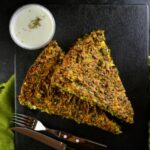The surprising connection between gratitude and better health

Gratitude and goals may seem like conflicting ideals. After all, gratitude centers around finding happiness in your current state while goals push us to strive for a better one. Some argue that thankfulness leads to complacency–that if you’re grateful for your body, for example, your weight loss efforts will fail. Time and again, however, studies show that a grateful mindset leads to a host of positive outcomes, all of which can help us better achieve our goals.
Glenn Fox, a neuroscientist who specializes in the science of gratitude, says, “Benefits associated with gratitude include better sleep, more exercise, reduced symptoms of physical pain, lower levels of inflammation, lower blood pressure and a host of other things we associate with better health.”
Gratitude and Sleep
“Grateful thinking and grateful moods help us sleep better and longer,” Robert Emmons, a renowned expert on the psychology of gratitude reports[1]. “In one study, people keeping a gratitude journal slept on average 30 minutes more per night, woke up feeling more refreshed, and had an easier time staying awake during the day compared to those who didn’t practice gratitude.”
When you focus your energy at bedtime on finding reasons to be grateful in your circumstances or taking note of the good that happened in the day, you create calmer, more pleasant thoughts. Ultimately, those positive thoughts promote better sleep.
Gratitude and Health
Two recent studies suggest that a grateful attitude is actually predictive of good health, both because gratitude helps lower stress and feelings of isolation and because grateful people tend to engage in healthier habits and are more likely to seek help when they have health concerns. [2,3] Gratitude has also been linked to healthier eating, great news for people eating low carbohydrate diets or making nutritional goals[4].
The UC Davis Medical Center reports several connections between gratitude and health [5]:
- “Gratitude is related to 23 percent lower levels of stress hormones (cortisol).
- Practicing gratitude led to a 7-percent reduction in biomarkers of inflammation in patients with congestive heart failure.
- A daily gratitude practice can decelerate the effects of neurodegeneration (as measured by a 9 percent increase in verbal fluency) that occurs with increasing age.
- Grateful people have 16 percent lower diastolic blood pressure and 10 percent lower systolic blood pressure compared to those less grateful.
- Grateful patients with Stage B asymptomatic heart failure were 16 percent less depressed, 20 percent less fatigued and 18 percent more likely to believe they could control the symptoms of their illness compared to those less grateful.
- Writing a letter of gratitude reduced feelings of hopelessness in 88 percent of suicidal inpatients and increased levels of optimism in 94 percent of them.
- Grateful people have between 9-13 percent lower levels of Hemoglobin A1c, a key marker of glucose control that plays a significant role in the diagnosis of diabetes.[5]
Gratitude and Goals
Gratitude motivates and energizes us to take action. In a 2011 study, participants who regularly counted their blessings for 10 weeks reported greater progress toward their goals compared to those recording hassles and neutral activities [6]. A similar study showed that gratitude participants exercised an astonishing 1.5 hours more per week compared to control groups [7]. Furthermore, a 2009 study suggests that a grateful outlook empowers people to believe that they deserve positive outcomes and are able to achieve them [8].
As Robert Emmons concludes, “Gratitude enhances effortful goal striving.”[9]
How to Foster a Grateful Mindset
So how can you best reap this host of benefits?
- Count your blessings. At the end of each day or week, write down a sincere list of things you’re grateful for. Spend time regularly finding gratitude in the ordinary moments of life.
- Write a letter to someone who has impacted you but whom you haven’t yet thanked. Be specific about their contributions and influence. This practice can have lasting impacts both on you and on the recipient.
- Meditate on (or pray about) the things you’re thankful for. Take the time to evaluate the world around you with each of your senses and identify the things that you appreciate, both in and outside of yourself.
- Remember where you started. Sometimes it can feel like progress is too slow, too difficult, or too far away. Remembering where you started can help you see the small victories and take pride in every one. Are you working toward fat loss? A single pound counts! Trying to eat a keto diet? Every healthy meal or meal replacement helps. Each step forward gets you closer to where you want to be.
The science is clear: gratitude is good for you. So if you’re struggling with your goals, try incorporating a gratitude practice into your daily or weekly routine. The results may surprise you.
References
- https://greatergood.berkeley.edu/article/item/three_surprising_ways_that_gratitude_works_at_work#thank-influence
- http://mural.maynoothuniversity.ie/12131/1/BO-Psychosocial-2018.pdf
- https://www.ncbi.nlm.nih.gov/pmc/articles/PMC3489271/
- https://www.psychologytoday.com/us/blog/finding-new-home/201811/another-potential-benefit-gratitude-healthier-eating
- https://health.ucdavis.edu/medicalcenter/features/2015-2016/11/20151125_gratitude.html
- https://emmons.faculty.ucdavis.edu/wp-content/uploads/sites/90/2015/08/2011_2-16_Sheldon_Chapter-16-11.pdf
- Lindberg, Eric. “Practicing gratitude can have profound health benefits > News > USC Dornsife.” USC Dornsife, 26 November 2019, https://dornsife.usc.edu/news/stories/3124/practicing-gratitude-can-improve-your-health-and-well-being/. Accessed 17 January 2022.
- http://www.tandfonline.com/doi/abs/10.1080/17439760903157182
- Why Gratitude Enhances Well-Being: What We Know, What We Need to Know.” Robert Emmons, https://emmons.faculty.ucdavis.edu/wp-content/uploads/sites/90/2015/08/2011_2-16_Sheldon_Chapter-16-11.pdf. Accessed 17 January 2022.
This article is for informational and educational purposes only. It is not, nor is it intended to be substitute for professional medical advice, diagnosis, or treatment and should never be relied upon for specific medical advice.

















